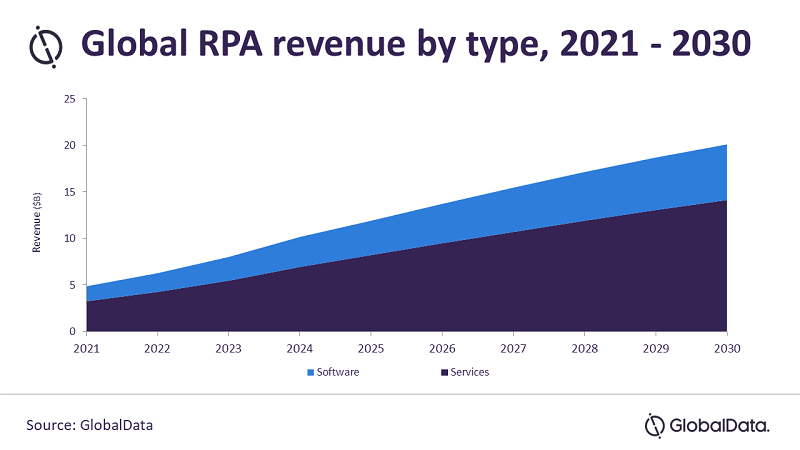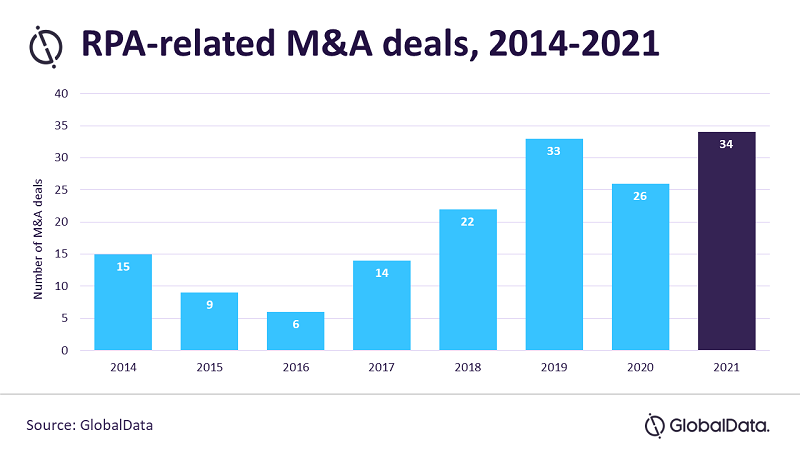For immediate release: August 26, 2022
NEWS RELEASE
For immediate release: August 26, 2022 Global RPA software and services market will be worth $20 billion by 2030, says GlobalData Following disruptions caused to businesses by the COVID-19 pandemic, there has been increased interest in robotic process automation (RPA) as enterprises seek to reduce dependency on a human workforce. As a result of this, the global RPA software and services market will be worth $20.1 billion in 2030, up from $4.8 billion in 2021, according to GlobalData, a leading data and analytics company.
GlobalData’s latest report, ‘Thematic Research: Robotic Process Automation’, reveals that businesses in virtually every industry accelerated their automation efforts during the pandemic. As RPA is a relatively fast solution to implement, it allows enterprises to make headway on their digital transformation efforts. RPA is not a technology for a dystopian future; it is here and has attracted the attention of leaders and executives. The time for investing in RPA was yesterday. Nicklas Nilsson, Consultant for Thematic Research at GlobalData, comments: “COVID-19 highlighted the necessity of coordinating automation across a business. This has accelerated the development of RPA as companies move away from stand-alone automation capabilities and instead offer RPA as part of a broader toolkit of automation and artificial intelligence (AI) technologies, allowing for end-to-end automation of more complex business processes.” RPA has undergone a rapid transformation, evolving into a key component of intelligent automation, wherein AI and other business process technologies—such as low-code development tools, process mining, intelligent document processing, and business process management (BPM)—are combined with RPA to facilitate enterprise-wide automation initiatives. Nilsson adds: “Cloud and platform giants—such as Microsoft, ServiceNow, and Salesforce—have recognized that software budgets are shifting towards automation and RPA and have eagerly turned to M&A to add RPA to their automation portfolios. In turn, the RPA pioneers that drive adoption—such as UiPath, Automation Anywhere, and Blue Prism—have focused on adding capabilities from adjacent business process technologies. Process mining companies have been particularly in demand as the technology is often viewed as a way to onboard new customers into initial automation solutions.” RPA capabilities are increasingly being embedded into various digital transformation tools and services. As a result, numerous RPA acquisitions have taken place in the last couple of years. There were 159 RPA-related M&A deals between 2014 and 2021, with 2021 being a record year, according to GlobalData.
Nilsson ends: “RPA will continue to attract attention in the coming years for its role in helping enterprises accelerate digital transformation and modernize traditional business processes. Integrating intelligent technologies like AI and making the technology more accessible using low-code tools and cloud RPA will be high up on the agenda going forward for all companies seeking to become the go-to, one-stop-shop automation platform around which all others are centered.” |









